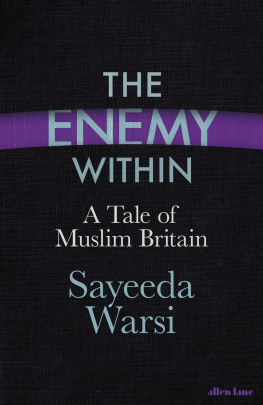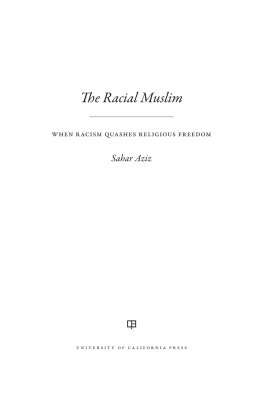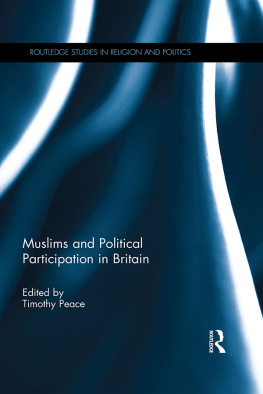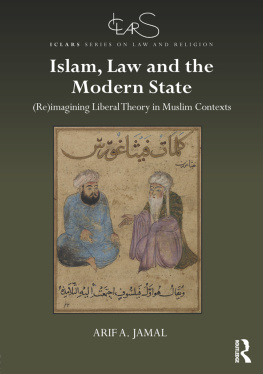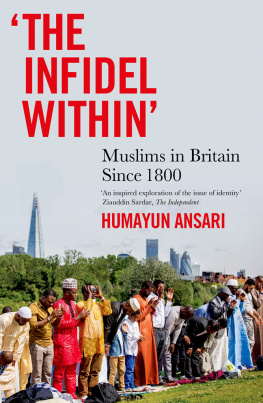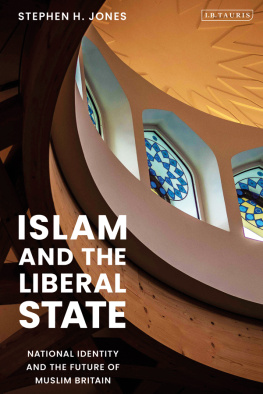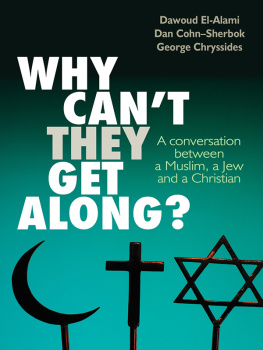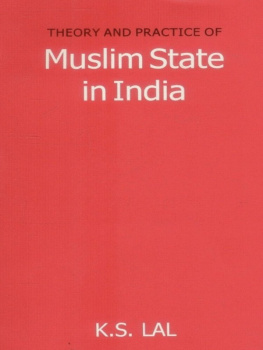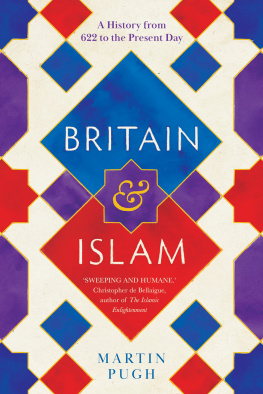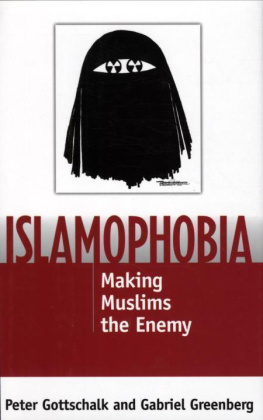Sayeeda Warsi
THE ENEMY WITHIN
A Tale of Muslim Britain
ALLEN LANE
UK | USA | Canada | Ireland | Australia
India | New Zealand | South Africa
Allen Lane is part of the Penguin Random House group of companies whose addresses can be found at global.penguinrandomhouse.com
First published 2017
Copyright Sayeeda Warsi, 2017
The moral right of the author has been asserted
Cover image: Axel Hoedt
ISBN: 978-0-241-27604-4
To all the victims of terrorism past, present and future: innocent men, women and children who lost their lives as others pursued their violent political goals.
Introduction: Belonging
Never apologize for showing feelings. When you do so you apologize for the truth.
Benjamin Disraeli
Its quite an art to insult someone well, to deliver a phrase that is cutting and effective, the perfectly pitched put down ball, words that leave your adversary winded. Many a mother-in-law has perfected this art. But whats always impressed me more is not the delivery of the insult but the fielding of it.
When I was a child, the two insults that hurt most were Paki and specky. Contact lenses from the tender age of sixteen fixed the latter, but the former took a lot longer. Wandering around the Bradford mela during my youth I came across a young British Pakistani selling T-shirts, one of which simply read PAKI. Not quite sure how my mum would react to such a garment, I resisted the temptation to buy, but it signalled the start of a community owning its identity, insults and all.
Times have changed, Paki is no longer the favoured insult for the likes of me; nor do I much these days mix in those circles where overt racism is worn as a badge of honour. Ive been a positive social mobility story, and so my adversaries are no longer intellectually challenged skinheads but respectable, refined individuals where the insult is couched in reason and the words used are sophisticated, almost poetic. Xenophobia as an ideology is a broad church, with adherents ranging from your drunken, street-fighting thug to the chichi academic, commentator and, dare I say, even politician.
An emphasis on difference, an acceptance of that which sets us apart rather than that which makes us the same, can be the start of a positive lifelong learning experience. Acknowledging and accepting difference was the foundation of the multicultural melting pot that is todays Britain, the basis of amazing friendships and loving relationships and the journey in which others change us and we change them. But this same difference can also be the justification for insult.
And for me owning the insult is the most powerful way of neutralizing the words and winning the fight for a diverse and plural society.
We all see difference, we all are different. Our children are now young adults, and often my husband and I will argue a position which makes absolute sense to us but seems alien to them. Its a generation thing, but its also, as our kids keep reminding us, a Pakistani thing. They keep telling us they are different to us. We agree, and to make the point I recently bought my husband the T-shirt Its a Paki thing and you wouldnt understand. He wears it with great pride.
As a child I knew we were different from our neighbours.
I was six years old when we moved to Falcon Road in Savile Town, Dewsbury. It was the third of what in the end became six different houses we lived in over a period of twenty years in the area. My parents continue to live nearby. Savile Town, which takes its name from the Savile family, has a history stretching back to the 1300s and was part of the famous woollen trade in West Yorkshire. Most of the mills on the banks of the River Calder closed in the 1970s, but the workers the mills had attracted, the migrants from India and Pakistan in the 1950s and 60s, went on to shape the Dewsbury of today.
Childhood in Savile Town during the late 1970s and early 80s involved brass bands, scouts and guides parades, hopscotch and British bulldog games in the street. The Queens silver jubilee celebrations rubbed alongside a growing Muslim community and the building of what was then the largest mosque in Europe, the Markaz.
Dewsbury has in more recent times lost some of the charm and prosperity of its past. The Victorian houses, the town hall and the now converted mills still stand tall and majestic, the greenery and parks are still beautiful and the market still vibrant, but the general decline is visible in a town centre that is peppered with pawn and pound shops.
The last decade appears to have provided a string of bad-news stories, from the sad saga of the fake kidnap of schoolgirl Shannon Matthews by her mother to the towns tragic association with high-profile suicide bombers Mohammad Sidique Khan and Talha Asmal. But for me Dewsbury is still the place that produced local girl Eileen Fenton, who swam the English Channel, the scientist who invented the first stored-program computer, Tom Kilburn, and the first female speaker of the House of Commons, Betty, now Baroness, Boothroyd. For me this town of my birth, where I made my career as a lawyer and which I adopted in the title I took upon being made a life peer, is what shaped my identity. It is the basis of my success and a place for which I have both great affection and cautious hope.
Savile Town is now almost exclusively made up of a community which is of South Asian descent and Muslim by faith, but as a child I grew up in a Savile Town that was much more diverse. It was a mixed community, a strong white working class and a minority Muslim community, which divided into families originating from the Gujarat district of India and families from the Punjab and Kashmir provinces of Pakistan.
The Goodlads and the Pearsons were our neighbours. Mr Pearson I held in high regard, as he owned the local sweet shop, and the Goodlads had a daughter my age, so provided an extra playmate. Both had immaculate gardens. Orderly, tidy, colourful and calm, whereas ours, however hard my mum tried, always looked like a cheap imitation. They had fairy lights at Christmas, a blow-up swimming pool, fencing which smelled amazing when treated and above all a greenhouse and a caravan, a clean white caravan that whisked them away on holiday usually during the summer, leaving me to contemplate another life that could be, another world, which included the magical place known as Great Yarmouth. I so wanted to go to Great Yarmouth, it seemed far away, exotic, unachievable, and I vowed that one day when I grew up, I would buy a caravan and take my children to Great Yarmouth. To date, I have not done so.
Of all the things the Goodlads had and we did not, it was the greenhouse and caravan I yearned for most. My parents didnt seem remotely interested in investing in either, instead choosing to buy a second-hand glass display cabinet for the posh front room and some property in Pakistan. These were differences I wanted to change, to bridge. I wanted to belong.
We were one of the small number of Pakistani-origin Muslim families. Living there was an active decision taken by my parents, and one that had a profound impact on my upbringing and my identity. It was a decision which would in later life be regularly discussed in the family and one which my mother still cites as one of her many wise decisions. I agree with her. It exposed my siblings and me to a plural and diverse ethnic and religious upbringing, where the world at home was often very different from the world in our local Muslim community, different from the world in the madrasa we attended and certainly different from mainstream Dewsbury. As children, we quickly learned to recognize, rationalize and reconcile difference.

